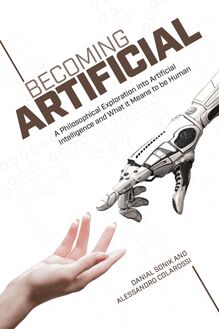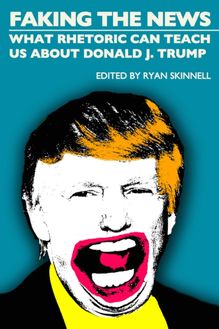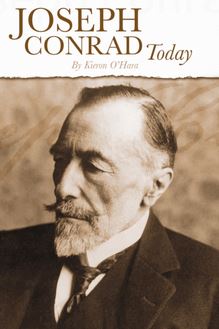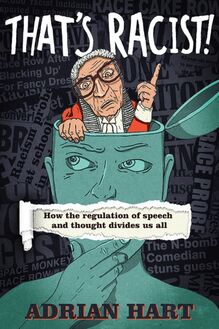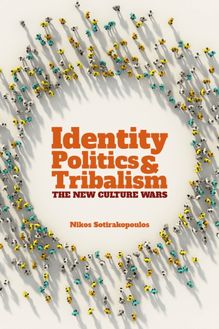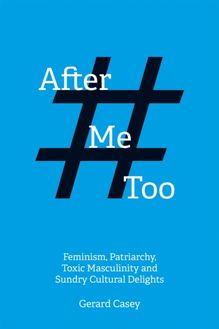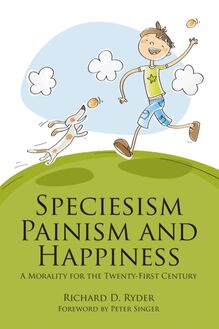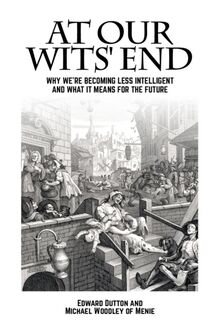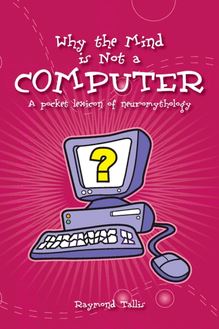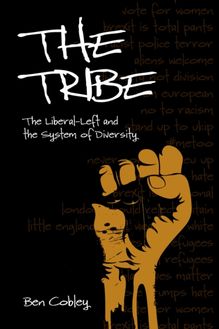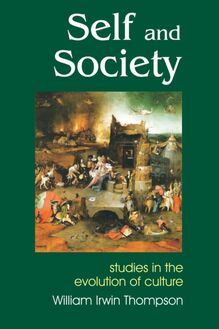Snake that Swallowed Its Tail , livre ebook
54
pages
English
Ebooks
2013
Vous pourrez modifier la taille du texte de cet ouvrage
Obtenez un accès à la bibliothèque pour le consulter en ligne En savoir plus
Découvre YouScribe en t'inscrivant gratuitement
Découvre YouScribe en t'inscrivant gratuitement
54
pages
English
Ebooks
2013
Vous pourrez modifier la taille du texte de cet ouvrage
Obtenez un accès à la bibliothèque pour le consulter en ligne En savoir plus
Publié par
Date de parution
18 novembre 2013
Nombre de lectures
0
EAN13
9781845407285
Langue
English
Publié par
Date de parution
18 novembre 2013
Nombre de lectures
0
EAN13
9781845407285
Langue
English
Title page
The Snake that Swallowed Its Tail
Mark Garnett
IMPRINT ACADEMIC
Copyright page
2013 digital version by Andrews UK Limited
www.andrewsuk.com
Copyright © Mark Garnett, 2004
The moral rights of the author have been asserted.
No part of any contribution may be reproduced in any form without permission, except for the quotation of brief passages in criticism and discussion.
Originally published in the UK by Imprint Academic
PO Box 200, Exeter EX5 5YX, UK
Originally published in the USA by Imprint Academic
Philosophy Documentation Center
PO Box 7147, Charlottesville, VA 22906-7147, USA
Dedication
For Millie, as a token of excessive and probably counter-productive parental expectations.
Acknowledgements
Nick Cohen, John Hoffman and Ivo Mosley kindly read parts of this essay in the early stages of drafting. Keith Sutherland read the whole manuscript and has offered friendly encouragement throughout. I am most grateful to these friends for their helpful suggestions, and to Keith for his insights into the work of Edward Hopper. But in respect of any errors of fact or interpretation in what follows I must obey the precepts of liberal individualism and accept full responsibility.
Introduction
After the destruction of the World Trade Center in September 2001, Western political leaders agreed that the terrorists had attacked everything their civilisation stood for. When they recited their list of threatened values, the same words and phrases turned up again and again: democracy, freedom of speech, tolerance, etc. Although the ruling parties in different countries bore a variety of names, under the pressure of events they had lined up to claim membership of the same ideological family. The values they named were all highly characteristic of liberalism.
The claim that liberalism is the presiding spirit in Western politics and society will be familiar to most students of ideology. John Gray, for example, has written that liberalism is ‘the political theory of modernity’. [1] According to Richard Bellamy, ‘From New Right Conservatives to democratic socialists, it seems that we are all liberals now’. [2] Anyone who doubts these judgements should remember that over the past two centuries Western states have adopted the procedures of liberal democracy – the ones which, we are told, were attacked on September 11. Those procedures have not become prevalent throughout the West by accident, but because of the success of liberal ideas. And since we operate within a framework of liberal institutions, it is hardly surprising that we have also adopted the vocabulary of liberalism. Political parties across the West have come to resemble each other – both within and across national boundaries. But the influence of liberalism has extended far beyond politics. It informs even the mundane activities of the lives we lead within a liberal economic order.
However, events since September 11 have demonstrated that a liberal consensus is no guarantee of unanimity, even on issues of fundamental principle. People with impeccable liberal credentials have argued passionately on both sides of the case for war on Iraq. In Britain, tough new anti-terrorist laws have been introduced, the right to trial by jury is under threat, and before long we are likely to be issued with identity cards. Some critics have accused New Labour of deserting the liberal stance it adopted in opposition. In reply, the government insists that it is only taking the necessary steps to preserve a liberal society through a time of crisis. As a reliable press supporter has argued, ‘Better a five-minute wait or an ID card than a bomb’. [3]
Important though they are, these debates are not the central concern of this essay. I want to remind readers that a schism could be detected in liberal ranks long before September 2001. I call the rival camps ‘fleshed-out’ and ‘hollowed-out’ liberalism. The former retains a close resemblance to the ideas of the greatest liberal thinkers, who were optimistic about human nature and envisaged a society made up of free, rational individuals, respecting themselves and others. The latter, by contrast, satisfies no more than the basic requirements of liberal thought. It reduces the concepts of reason and individual fulfilment to the lowest common denominator, identifying them with the pursuit of short-term material self-interest. For the hollowed-out liberal, other people are either means to an end, or obstacles which must be shunted aside. Instead of an equality of respect, this is more like equality of contempt. But from the point of view of liberal theory, all that really matters is that other people are treated equally . [4]
When we say that liberalism is dominant in the West, I believe that we are referring to this hollow form. It is the presiding spirit of the media, which shapes so much of our thinking even if we are often unconscious of its effects. The advertising industry would collapse without it. Increasingly it provides political debate with its underlying assumptions. And its influence over society as a whole can only come at the expense of the fleshed-out version. Those who try to organise their lives around long-term expectations find it hard to cling to their views when they think that people around them are driven by the desire for immediate gratification. Unless they possess unusual resolve, they will have to act in accordance with the prevailing mood; and experience will sap them of the optimism which is essential to their beliefs. It only requires a few concrete examples of hypocrisy and deceit to make us wary of new acquaintances; and, in time, we even begin to worry about the motivations of our ‘nearest and dearest’. Thus the success of hollowed-out liberalism has a tendency to reinforce itself. Social life becomes a series of tentative encounters, and white-collar work consists of dreary routine punctuated by fruitless bonding sessions.
Some argue that the triumph of hollow liberalism is inevitable. It seems highly appropriate for fast-changing times, characterised by economic and emotional insecurity. In recent years we have indeed seen the emergence of a new hollow vocabulary – management-speak, political correctness, and the various discourses of ‘choice’. But Westerners need more than this. More than ever, they are searching for reassurance that they are right as well as rich. After 9/11, their politicians were forced to address this question. Despite the feverish atmosphere of the time, they still sounded unconvincing as they testified to the glories of Western civilisation. It was too obvious that there was a mismatch between the panegyric and its object. Their slogans were borrowed from the great tradition of fleshed-out liberalism; but they were using them to praise hollow societies.
Rather than being a convenient counterpart to a consumerist society, hollowed-out liberalism is beginning to look like an unsavoury relic of the Cold War. Until the collapse of the Communist bloc, Western leaders could afford to talk in clichés because they knew that the ‘battle of ideas’ was being decided by economic growth-rates. Ronald Reagan and Margaret Thatcher got away with it; but George W. Bush and Tony Blair are fighting a very different war, which cannot be won without a meaningful moral vision. It will be some time before another British political party embarks on a dubious war after blabbering on about the ‘ethical dimension’ to its foreign policy.
Bush and Blair are also fighting their war in a different context. In Britain we have just celebrated twenty-five years of hire-and-fire capitalism. It has survived almost as long as the ‘mixed economy’ which preceded it. Although the pace of contemporary life is a deterrent to serious reflection, there is evidence that many people are beginning to take stock. Even if we accept that the philosophy of selfishness has played a significant role in boosting average living standards in the West, our relative success in this sphere has given us a unique opportunity to wonder if selfishness is all that life has to offer. It provides us with the chance to see that hollowed-out liberalism is more than just a libel on human nature. It is also contradictory and self-defeating. It can only find a semblance of moral justification in ideas and slogans which rightly belong to an older and better tradition. The more often we hear them, the more we recognise that they are being taken out of their proper context.
This is a polemical essay, not a systematic treatise. It is not the place to attempt a complete explanation of our current predicament. My objective is simply to point out some of the contradictions of hollowed-out liberalism, as they are beginning to affect British society. I argue that this form of liberalism is like the snake which tried to swallow its tail. It is doomed by its combination of insulting presuppositions about human nature, and an inability to look beyond short-term interests. Its internal logic makes it grasp at expedients which only make things worse. Thus senior politicians respond to voter apathy with spin, sound-bites and slurs on their opponents. Newspaper editors worried about falling circulation dig deeper into the private lives of celebrities, eroding public interest in the celebrity culture which provides them with most of their ‘news’. And in their quest to ensnare the hollow viewer, television executives commission a stream of ‘reality’ programmes which prove that reality in a hollow society is irredeemably tedious and unwatchable.
Things are likely to get worse before they improve, but I believe that the snake of hollowed-out liberalism is coming towards the end of its last meal. The rate of ingestion has certainly been increasing, and the gap betwe

